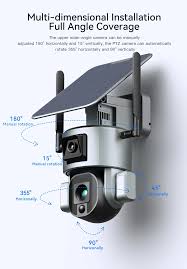The Importance of CCTV Security Cameras
In today’s world, security is a top priority for individuals and businesses alike. One of the most effective tools in ensuring safety and protection is the Closed Circuit Television (CCTV) security camera system.
CCTV cameras provide round-the-clock surveillance, monitoring activities in both indoor and outdoor spaces. They act as a deterrent to potential criminals, as the presence of cameras can significantly reduce the likelihood of illegal activities such as theft, vandalism, and trespassing.
Moreover, in the unfortunate event of a crime or incident, CCTV footage serves as crucial evidence for law enforcement agencies during investigations. The recorded video can help identify suspects, provide details of the event, and ultimately aid in solving cases.
Businesses benefit greatly from installing CCTV security cameras on their premises. Not only do they protect valuable assets and merchandise, but they also create a sense of security for employees and customers. Monitoring employee behavior and ensuring workplace safety are additional advantages that CCTV systems offer to businesses.
For homeowners, CCTV cameras offer peace of mind by allowing them to monitor their property remotely. Whether it’s keeping an eye on deliveries, checking in on pets while away, or being alerted to any suspicious activity around the house, CCTV systems provide an added layer of security for families.
As technology advances, modern CCTV systems come equipped with features such as motion detection, night vision, remote access via smartphones or computers, and cloud storage for footage. These enhancements make surveillance more efficient and convenient than ever before.
In conclusion, CCTV security cameras play a vital role in safeguarding homes, businesses, public spaces, and communities at large. Investing in a reliable CCTV system is not just about protection—it’s about creating a secure environment where people can live and work without fear. Stay safe with CCTV surveillance!
Understanding CCTV: Differences, Definitions, Best Types, and Pros & Cons
- What is CCTV vs security cameras?
- What does CCTV stand for?
- Which type of CCTV camera is best?
- Is CCTV a good or bad thing?
What is CCTV vs security cameras?
When comparing CCTV vs security cameras, it’s important to understand the distinction between the two. CCTV (Closed Circuit Television) refers to a system of video surveillance that transmits signals to a specific set of monitors for monitoring purposes. On the other hand, security cameras encompass a broader category of video cameras that can be used for various purposes, including live monitoring and recording. While all CCTV cameras are security cameras, not all security cameras are necessarily part of a CCTV system. CCTV systems typically involve a centralized monitoring station and are commonly used for surveillance in public areas, businesses, and homes to enhance security measures and deter criminal activities effectively.
What does CCTV stand for?
CCTV stands for Closed Circuit Television. This acronym refers to a system of video cameras that transmit signals to a specific set of monitors for surveillance and security purposes. CCTV technology is widely used in various settings, including homes, businesses, public areas, and government facilities, to monitor activities and deter potential criminal behavior. The closed-circuit aspect means that the video feed is only accessible to a limited number of authorized users, ensuring privacy and security for the monitored area. Understanding what CCTV stands for is essential for grasping the fundamental concept behind this valuable security tool.
Which type of CCTV camera is best?
When considering which type of CCTV camera is best, it ultimately depends on the specific needs and requirements of the user. Different types of CCTV cameras serve different purposes, such as dome cameras for indoor surveillance, bullet cameras for outdoor monitoring, PTZ cameras for flexible coverage, and thermal cameras for detecting heat signatures. Factors to consider include the desired coverage area, lighting conditions, resolution quality, budget constraints, and any additional features required (such as night vision or remote access). It is recommended to assess individual preferences and consult with security professionals to determine the most suitable CCTV camera type that aligns with your security goals.
Is CCTV a good or bad thing?
The question of whether CCTV is a good or bad thing is often debated, with varying perspectives on its implications. Supporters argue that CCTV serves as a valuable tool in enhancing security and deterring criminal activities. The presence of cameras can provide a sense of safety for individuals and help law enforcement agencies solve crimes with recorded evidence. On the other hand, critics raise concerns about privacy issues and the potential for surveillance abuse. They argue that constant monitoring through CCTV infringes on personal freedoms and may lead to a surveillance state. Ultimately, the answer to whether CCTV is good or bad depends on how it is used, balanced with considerations of privacy rights and ethical practices in its implementation.

